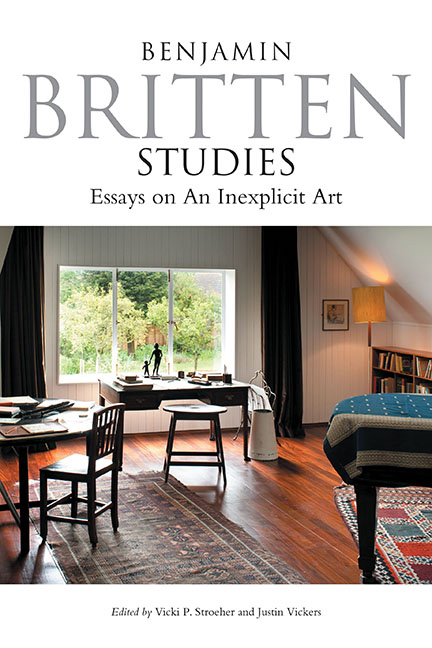Book contents
- Frontmatter
- Dedication
- Epigraph
- Contents
- List of Illustrations
- List of Musical Examples
- List of Tables
- Notes on Contributors
- Acknowledgements
- Bibliographic and General Abbreviations
- Editors’ Preface
- Introduction: Writing About Britten
- Part I Identity: Exile and Return
- Part II Britten and Intimacy
- Part III Britten and His Craft
- Part IV Britten and Matters of Practicality
- Conclusion and Epilogue
- 15 The Man Himself
- 16 Epilogue: Liminalities and Britten
- Works Cited
- Index
15 - The Man Himself
from Conclusion and Epilogue
Published online by Cambridge University Press: 25 October 2017
- Frontmatter
- Dedication
- Epigraph
- Contents
- List of Illustrations
- List of Musical Examples
- List of Tables
- Notes on Contributors
- Acknowledgements
- Bibliographic and General Abbreviations
- Editors’ Preface
- Introduction: Writing About Britten
- Part I Identity: Exile and Return
- Part II Britten and Intimacy
- Part III Britten and His Craft
- Part IV Britten and Matters of Practicality
- Conclusion and Epilogue
- 15 The Man Himself
- 16 Epilogue: Liminalities and Britten
- Works Cited
- Index
Summary
I catch occasional glimpses of the face behind: disturbing & full of anguish.
Maxwell ArmfieldThis chapter is about “selves”: what constitutes a self, how we might locate it, and whether it is possible at all. It is also about Benjamin Britten, although while my topic is “Britten,” for the most part I shall concern myself with how the subject of “Britten” is created, communicated, absorbed, and investigated further; and shall be particularly interested in the reasons for any such investigations. My title comes from another writer's search for a musico-biographical subject: one Lady Grace Wallace, who translated Ludwig Nohl's The Life of Mozart into English and who wrote her own fervent introduction to the volume. Her preface includes the following statement within a discussion of Mozart's various genres:
it is [in the concertos for piano] that we most feel how great a loss to us is the man himself. […] It is impossible for any player now, however good, to take Mozart's place here.
Mozart inspired some extraordinary biographical outpourings, particularly in the nineteenth century, a great many of which were imbued with a sense of loss at the tragically early death of such a shining musical genius, and Lady Wallace's preface is no exception. But at the same time she does a curious thing here: she looks at the piano concertos and finds, to her mournful regret, only the ghost of Mozart. Yet she herself has killed him off by declaring it impossible that the piano concertos can truly be “heard” now that Mozart is dead. Not only have we lost Mozart: his music doesn't even stand a chance.
She may be overstating her position. But she undeniably experiences a sense of melancholy in envisaging a dead artist and his “traces” in a work; and despite his death being just over forty years ago, the same can be (and is) felt about Britten. However, unlike Mozart, whom Lady Grace could never have heard anyway (she was born some fifteen years after the composer's death), “Britten” can easily be accessed in recordings and in film. Yet even though we can hear “the man himself” in the music and in his spoken words, he is – nonetheless – no longer alive.
- Type
- Chapter
- Information
- Benjamin Britten Studies: Essays on An Inexplicit Art , pp. 430 - 458Publisher: Boydell & BrewerPrint publication year: 2017



